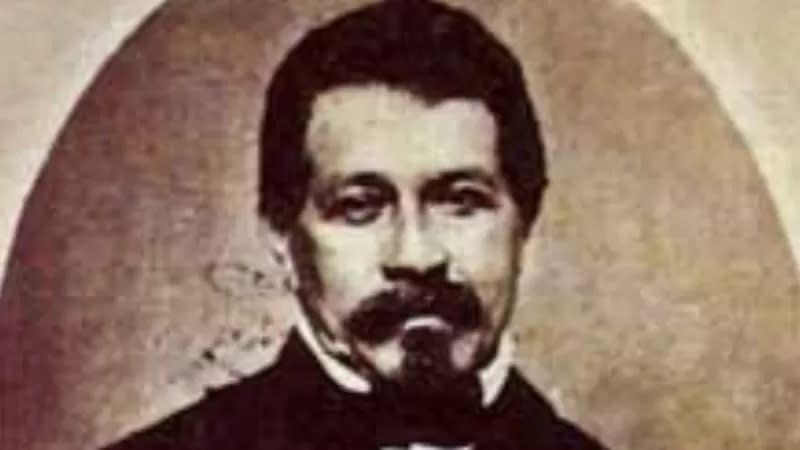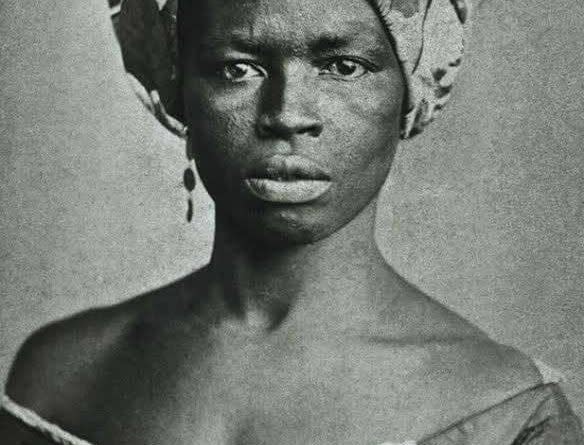Colombia's Independence Day: Meet The Historic Afro-Colombians Who Fought For Freedom

- Oops!Something went wrong.Please try again later.
On July 20, Colombians celebrate their country’s independence day. This vibrant Latin American nation became independent in 1811 after being colonized by Spain in the 1500s. The wars for independence were led by Símon Bolívar. But, for centuries, the Colombian elite tried to hide the importance of Black people during the struggle for independence from the Spanish crown.
Historians note that many soldiers in Simón Bolívar’s army were African. Afro-Colombians were able to participate at all levels of military and political life in some of the most crucial historical events in the country. However, even though this is a historical fact, many Colombians hardly know that Colombia had many Black officers that fought in the liberating army.
Today, Colombia is still considered a developing country. With an estimated population of 51.5 million people, it has the second largest African-descendant population in Latin America, after Brazil.
Despite having a large Black population, representing 10% of Colombia’s entire population, Black Colombians still lag behind in almost every segment within the country’s society. Racism, neglect, police brutality, and poverty are a reality in the lives of Black people across the country.
Even with the contributions of Black Colombians, slavery was not abolished until May 21, 1851, 40 years after Colombia attained its independence. However, abolition was only in parts of the country. In many areas, such as the Valle del Cauca, Blacks were still persecuted and enslaved.
Here, Travel Noire has listed the names of some of the historic Afro-Colombians who have fought for freedom in Colombia– important names that should never be forgotten in the history of the African diaspora.
Juan Jose Nieto Gil

Born in 1805 in Baranoa, Colombia, during an era of revolution that transformed his country and allowed him to ascend socially and politically, Nieto Gil dedicated his life to being a participant in wars across Latin America to liberate those countries from Spain.
Nieto Gil was proclaimed president in 1861. However, one of his greatest achievements was on May 21st, 1851, when he decreed the abolition of slavery on the northern coast of Colombia during his time as governor of the Canton of Cartagena. Today, that date is known as ‘Afro-Colombian Day’ in the country.
Benkos Biohó
Benkos Biohó, fue traicionado por los Españoles con quienes había negociado la libertad de los esclavos que llegaran a San Basilio de Palenque, fue ahorcado y descuartizado el 29 de marzo de 1621 para no liberar más esclavos traidos de Africa pic.twitter.com/qhVh4aE5VA
— Historia de Colombia (@colombia_hist) June 22, 2018
Also known as Domingo Biojo, Benkos Biohó was born in the late 16th century into a royal African family in Guinea-Bissau. Kidnapped by the Portuguese slave trade and sent to what is now Colombia, this African man entered history by establishing one of the first free Black settlements in the Americas–San Basilio de Palenque.
He organized an army that came to dominate all of the Montes de María region. He also formed an intelligence network and used the information collected to help organize more escapes and to guide the runaway slaves into the liberated territory.
On July 18, 1605, the Governor Casasola of Cartagena, unable to defeat the Maroons, offered a peace treaty to Biohó, recognizing the autonomy of the Matuna Bioho Palenque.
Biohó signed a peace treaty with the local Spanish colonial government in 1612. The treaty was violated by the Spaniards in 1619 when they captured Biohó as he was walking into the city. He was betrayed and hanged by the governor of Cartagena on March 16, 1621.
Barule
Fue el Rey Barule quien lideró la más grande insurrección de esclavos Africanos en el Chocó en 1727.
El Rey Barule fue apoyado en la insurrección de esclavos por los hermanos Antonio y Mateo Mina. Coordinaron la revuelta de Tadó (Chocó) pic.twitter.com/g2Fj5LiXNu
— Historia de Colombia (@colombia_hist) July 24, 2021
Brought from Africa and sent to what is now the municipality of Tadó, in Chocó, Baule was the leader of one of the largest enslaved African insurrections in Colombia’s history in 1727. Along with the Mina brothers, he assembled an army of hundreds of Africans to fight against slave owners. He helped to encourage the sentiment of freedom among enslaved Africans in Colombia.
Casilda Cundumi Dembele

Also known as La Negra Casilda, Dembele was an Afro-Colombian Maroon leader. She was born in Palmira, Valle del Cauca, and escaped to the mountains with other 45 enslaved African-Colombians, establishing there a palenque (a Black settlement).
Popular among other Black Colombians for her leadership, Dembele was also known for her great knowledge of natural medicine, healing sick people with herbs.
On February 14, 1862 (10 years after the abolition of slavery in Colombia, Dembele organized an army with 200 Black Maroons and defeated the White army in Palmira.
After that victory, Dembele was considered the liberator of the Negros of the Cauca.
Related: Meet The Black President That Colombia Erased From Its History

